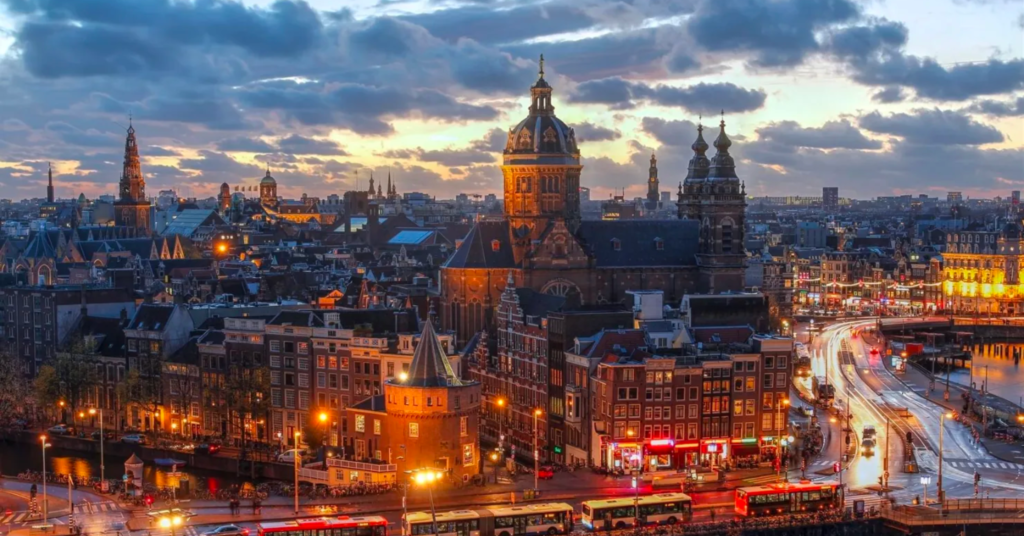As cities grow, smart city initiatives are becoming increasingly important for sustainability and reducing carbon emissions.

Smart city initiatives are being adopted by cities around the world, in order to make urban areas more sustainable and energy-efficient. These initiatives, which often incorporate smart technology and the Internet of Things (IoT), not only improve the quality of life of city residents but also help to reduce carbon emissions.
The United Nations predicts that 70% of the world’s population will be living in cities by 2050, making smart city initiatives more important than ever.
Here are some of the top smart cities in the world that are leading the way in sustainability:
Singapore
Singapore is often at the top of the list when it comes to smart cities.
Since launching its Smart Nation initiative in 2014, Singapore has introduced a wide range of smart technologies in both its public and private sectors.
The city has adopted contactless payment technology to efficiently direct movement and payments for Singapore’s 7.5 million passengers who use public transport.
Singapore has also introduced a digital health system to help elevate the pressure of an ageing population, which includes wearable IoT devices to monitor patients.
In 2021, Singapore announced plans for a new eco-smart city that is entirely vehicle-free. The city plans to build a forest city with five residential districts and 42,000 houses, as well as safe zones for both pedestrians and cyclists.
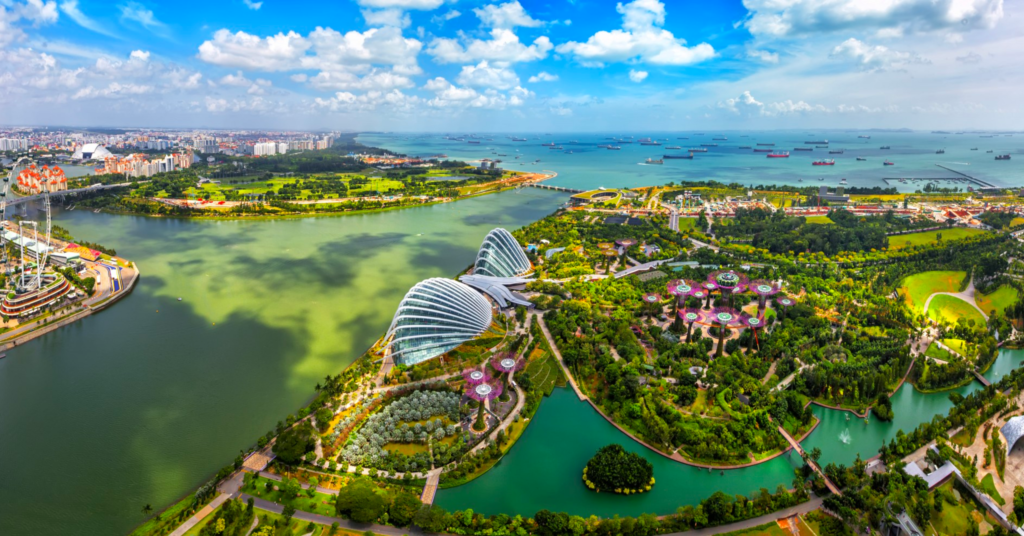
Helsinki, Finland
Helsinki has set itself the goal of going carbon neutral by 2035 and has already made significant strides towards achieving this target. In 2017, the city managed to lower emissions by 27% compared to 1990 levels.
Helsinki is also working towards reducing traffic emissions by 69% within three decades by 2035. The city has transitioned its entire bus fleet to electric vehicles and is expanding its Metro and electric car charging networks.
Since heating accounts for more than half of Helsinki’s emissions, the city is focused on implementing energy-efficiency measures during renovations and incorporating more renewable energy use in the city’s buildings.
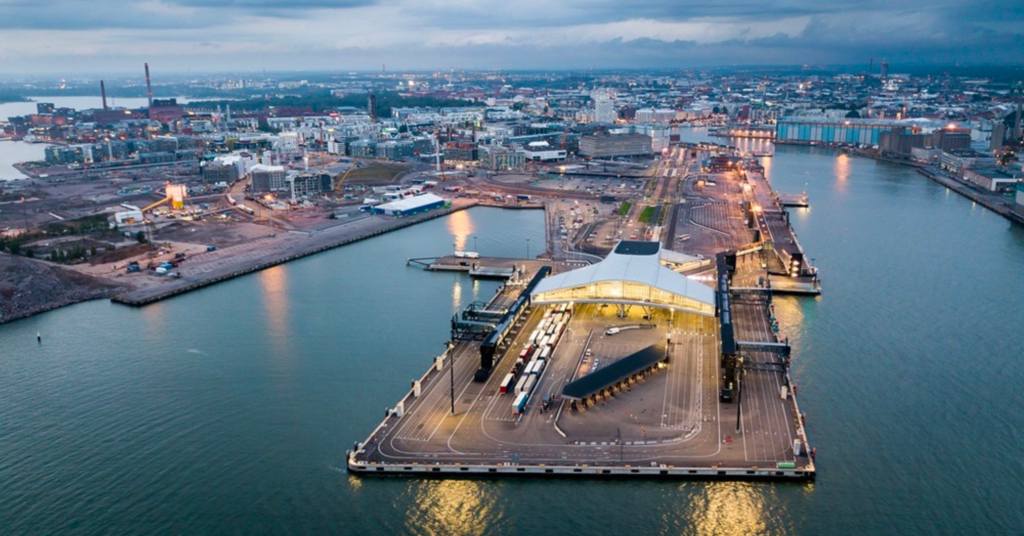
Zurich, Switzerland
Zurich’s smart city initiatives began with a streetlight project. The city introduced streetlights that adapted to traffic levels using sensors, which increased their brightness or dimmed them accordingly. The project enabled an energy saving of up to 70%.
Since then, Zurich has expanded its smart streetlights across the city and established a greater range of sensory technologies that can collect environmental data, measure the flow of traffic and act as a public WiFi antenna. The city also has a smart building management system that connects heating, electricity, and cooling, which has been shown to be highly effective.
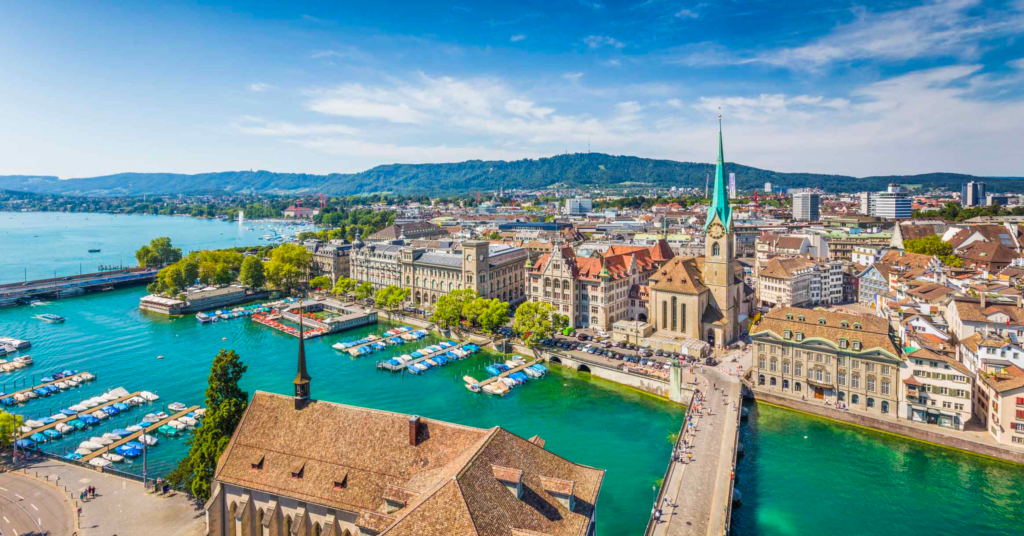
Oslo, Norway
Oslo is going all in with electric cars and plans for all vehicles in the entire city to go electric by 2025. Incentives for zero-emission cars have already been put in place, including free parking, the use of bus lanes, and lower taxes and prices at tolls. As part of the city’s target for becoming carbon neutral by 2050, other smart projects are also already well underway in Oslo. These include zero-emission construction sites and retrofitting existing buildings to develop circular waste management and green energy systems.
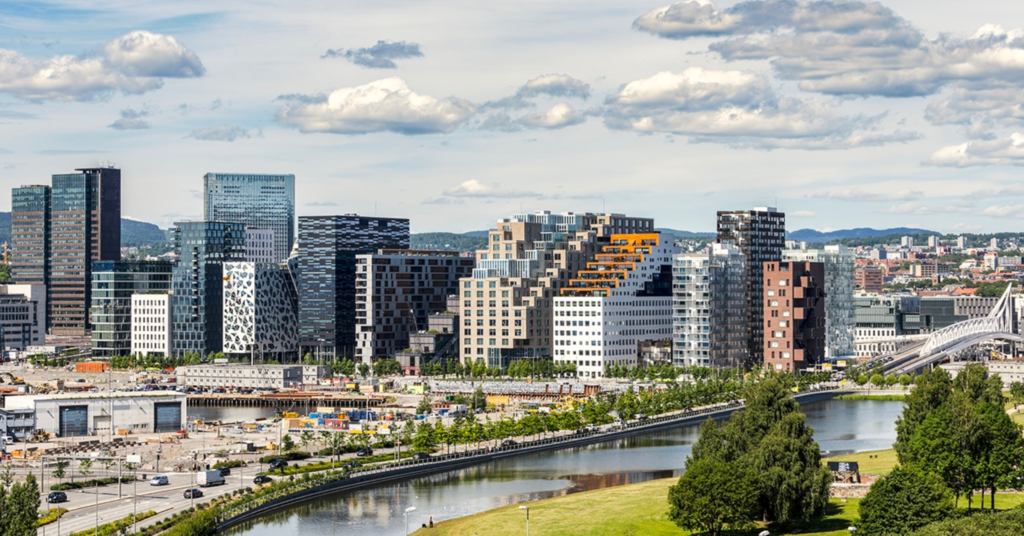
Amsterdam, The Netherlands
Amsterdam’s smart city project started in 2009 and features more than 170 different operations across the city. The city is known for its innovative solutions, such as using renewable energy for electric garbage trucks, installing solar-powered bus stops, billboards, and lights, and constructing floating villages to combat overcrowding and provide an alternative to land reclamation. Throughout the city, thousands of operating businesses and households have already been modified with energy efficient roofing insulation, automatically dimming light switches, smart meters, and ultra-low energy LED lights.
